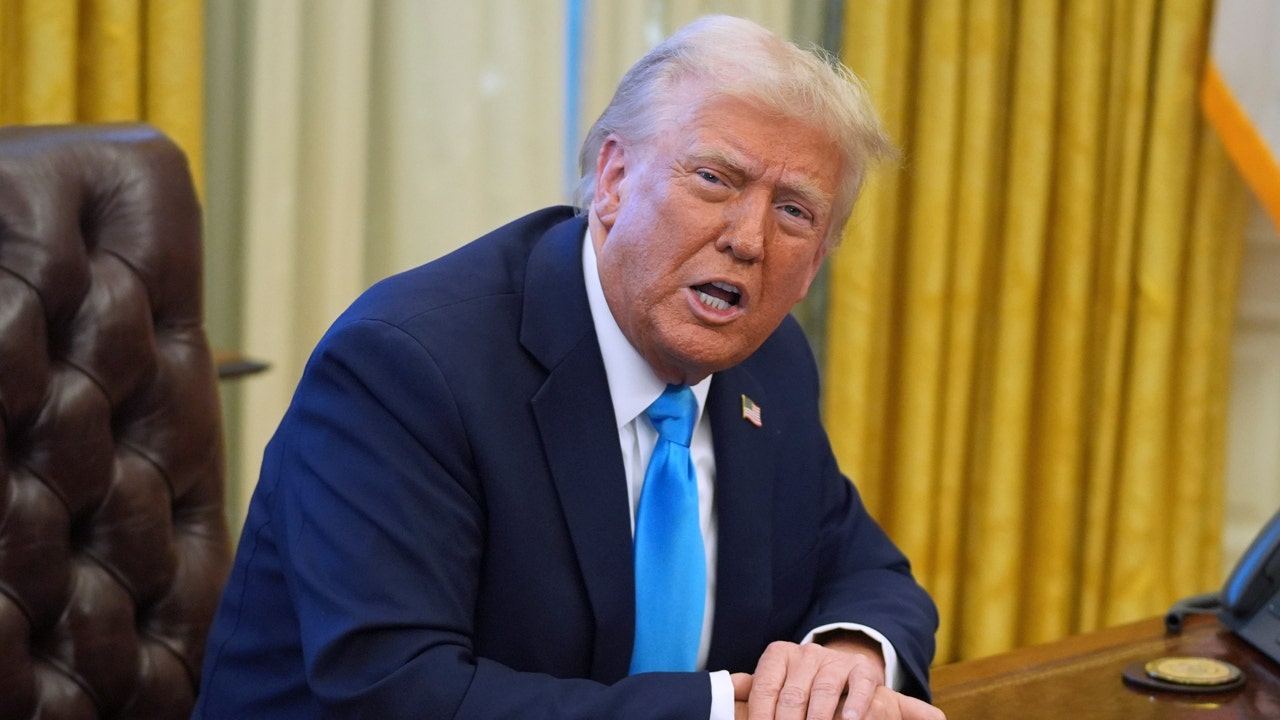Sports
NYC official removes post supporting Trump’s trans athlete order after ‘guidance’ from mayor’s chief of staff

The National Debate Over Trans Athletes in Women’s Sports: A Growing Divide
The issue of whether transgender athletes should be allowed to compete in women’s sports has become a flashpoint in American politics, with President Donald Trump’s recent executive order reigniting a fiery debate. The order, which seeks to ban trans athletes from participating in girls’ and women’s sports, has been met with resistance from several states, including New York, California, Minnesota, and Massachusetts. These states have chosen to defy the federal directive, arguing that it contradicts their own anti-discrimination laws and policies. The New York State Public High School Athletic Association (NYSPHSAA), for instance, has advised its member schools to continue allowing trans athletes to compete according to their gender identity, even as the state seeks public input before making a final decision.
New York’s Struggle to Balance State Law and Federal Pressure
In New York, the situation has become particularly complicated. NYSPHSAA Executive Director Dr. Robert J. Zayas has urged schools to adhere to the state’s current anti-discrimination laws, which permit trans athletes to participate in sports aligning with their gender identity. Dr. Zayas emphasized that the organization is working closely with state officials, including New York State Education Commissioner Dr. Betty Rosa, to assess the implications of Trump’s executive order and determine the appropriate next steps. However, not all officials in New York agree with this approach. Jasmine Ray, the Director of New York City Mayor Eric Adams’ Office of Sports, Wellness and Recreation, initially expressed support for Trump’s order on her Instagram Stories, stating that she stood behind the importance of fairness in women’s sports. However, she later deleted her post, citing guidance from the mayor’s chief of staff, Camille Joseph Varlack, and acknowledged that her personal beliefs should not interfere with her professional responsibilities.
A Nationwide Rebellion Against Trump’s Executive Order
While New York grapples with the issue internally, other states have taken a more definitive stance. California, a vocal opponent of the order, has declared that it will continue to follow state law allowing trans athletes to participate in sports consistent with their gender identity. The California Interscholastic Federation (CIF) reiterated its commitment to inclusivity, even in the face of backlash and threats of lawsuits from state residents. Similarly, Minnesota and Massachusetts have indicated that they will protect trans athletes’ right to compete in girls’ and women’s sports, despite the federal order. These states argue that excluding trans athletes would violate their own anti-discrimination laws and harm vulnerable students.
Public Opinion and the Shifting Political Landscape
The debate over trans athletes in women’s sports has also sparked significant public interest and controversy. A recent New York Times/Ipsos survey revealed that 79% of Americans, including a majority of Democrats, believe that biological males who identify as women should not be allowed to compete in women’s sports. This sentiment has put pressure on Democratic lawmakers, many of whom have historically supported LGBTQ+ rights but now find themselves at odds with their constituents. The U.S. House of Representatives’ vote on the Protection of Women and Girls in Sports Act in January highlighted this division. While all but two Democratic House members voted against the bill, which aimed to restrict trans athletes’ participation, some prominent Democrats, such as Rep. Hakeem Jeffries of New York, argued that the bill would empower predators by requiring genital examinations of young girls—a claim that had no basis in the actual language of the bill.
Democratic Voters’ Disillusionment and the Party’s Losing Battle
The Democratic Party’s response to the issue has alienated some of its long-time supporters. Gary Francione, a lifelong Democrat and law professor, expressed his frustration with the party’s tactics, stating that insinuating opponents of trans inclusion are child predators lacks integrity. Francione, who has since unregistered as a Democrat, is not alone. Many of his colleagues in the legal and other fields share his concerns and are also leaving the party. This growing dissatisfaction suggests that the Democratic Party’s stance on trans athletes in women’s sports may cost it votes in the 2024 election.
The Broader Cultural and Political Implications
The controversy over trans athletes in women’s sports reflects a deeper cultural divide in America. While advocates for inclusion argue that trans athletes should be allowed to compete according to their gender identity, others believe that allowing biological males to participate in women’s sports undermines fairness and potentially harms female athletes. This debate has become a rallying cry for both sides, with conservatives seizing on the issue to galvanize support and progressives framing it as a matter of civil rights. As the 2024 election approaches, the issue is likely to play an even more prominent role in shaping the national conversation. For now, states like New York, California, Minnesota, and Massachusetts remain at the forefront of the resistance against Trump’s order, setting the stage for a prolonged legal and political battle.











